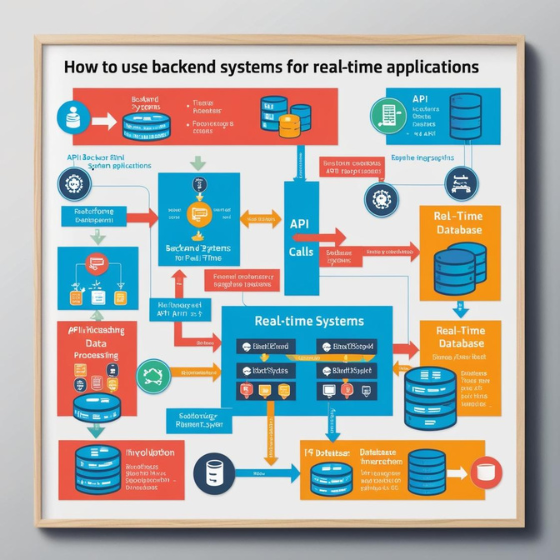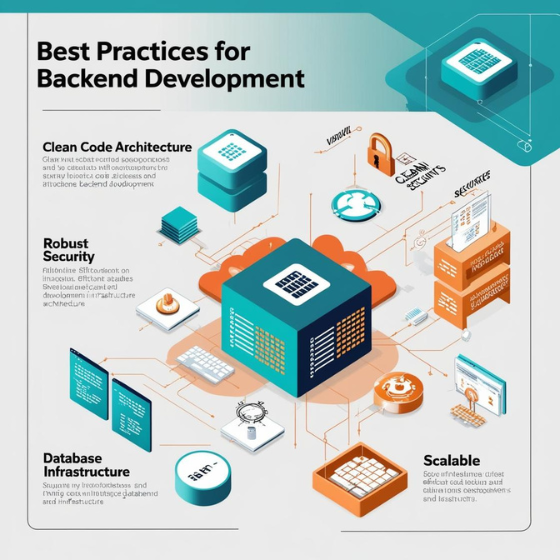Node.js has gained widespread acclaim as a powerful platform for server-side development. Its unique architecture and robust ecosystem offer numerous advantages for developers building scalable, efficient, and high-performance applications. This blog explores the key benefits of Node.js for server-side development and why it has become a preferred choice for modern web applications.
Event-Driven Architecture
Non-Blocking I/O
One of the most significant advantages of Node.js is its non-blocking, event-driven I/O model. Unlike traditional server-side environments, which often use multi-threading to handle concurrent requests, Node.js operates on a single-threaded event loop. This approach allows Node.js to handle multiple connections simultaneously without blocking the execution of other operations. As a result, Node.js applications can efficiently manage a large number of concurrent requests, making it ideal for real-time applications and services.
High Throughput
The event-driven architecture of Node.js enables high throughput, meaning that it can process a large number of requests per second. This efficiency is achieved by allowing the server to perform other tasks while waiting for I/O operations to complete. For applications that require real-time updates, such as chat applications or live data feeds, Node.js’s ability to handle numerous connections concurrently without compromising performance is a major advantage.
Scalability
Horizontal Scaling
Node.js excels in scalability due to its lightweight nature and support for horizontal scaling. Horizontal scaling involves adding more instances of a server to handle increased traffic. Node.js applications can be scaled horizontally by utilizing clustering or deploying multiple instances across different servers. This flexibility allows applications to accommodate growing user bases and increasing workloads without requiring significant architectural changes.
Microservices Architecture
Node.js is well-suited for microservices architecture, where an application is divided into smaller, independently deployable services. This architectural approach allows for better scalability, as each microservice can be developed, deployed, and scaled independently. Node.js’s lightweight runtime and efficient handling of asynchronous operations make it a natural fit for building microservices, enabling organizations to develop and maintain complex systems with ease.
Performance
Single-Threaded Event Loop
The single-threaded event loop in Node.js contributes to its impressive performance. Unlike traditional server-side languages that rely on multi-threading, Node.js handles I/O operations asynchronously, allowing it to perform other tasks while waiting for I/O operations to complete. This non-blocking approach minimizes latency and improves overall application responsiveness, resulting in faster and more efficient performance.
Efficient Memory Usage
Node.js is designed with efficiency in mind, including its memory usage. The V8 JavaScript engine, which powers Node.js, is known for its efficient garbage collection and optimization techniques. This ensures that memory is used effectively, reducing the likelihood of memory leaks and improving the overall stability and performance of Node.js applications.
Unified JavaScript Stack
Full-Stack JavaScript
One of the key benefits of Node.js is its ability to enable full-stack JavaScript development. With Node.js, developers can use JavaScript for both client-side and server-side development, creating a unified technology stack. This consistency simplifies development processes, reduces context switching, and allows for code reuse across different parts of the application. The use of a single language throughout the stack also facilitates better collaboration between frontend and backend developers.
Rich Ecosystem
Node.js has a rich ecosystem of libraries and frameworks available through the npm (Node Package Manager) registry. This extensive collection of packages allows developers to leverage pre-built modules and tools to accelerate development. From authentication and database integration to testing and deployment, the npm ecosystem provides a wide range of resources that enhance productivity and streamline the development process.
Real-Time Capabilities
WebSocket Support
Node.js’s built-in support for WebSockets enables the development of real-time applications that require persistent, bidirectional communication between the client and server. WebSockets allow for instant data exchange without the need for continuous polling, making them ideal for applications like chat systems, live notifications, and collaborative tools. Node.js’s non-blocking nature complements WebSocket communication, ensuring smooth and responsive real-time interactions.
Event-Driven Communication
The event-driven architecture of Node.js is well-suited for handling real-time events. Applications that require real-time updates, such as stock trading platforms or gaming servers, benefit from Node.js’s ability to process and respond to events efficiently. By leveraging events and asynchronous processing, Node.js enables seamless real-time communication and interactions between users and the server.
Development Speed
Rapid Prototyping
Node.js’s lightweight nature and extensive library support contribute to rapid prototyping and development. Developers can quickly build and test prototypes using Node.js’s built-in modules and third-party packages. The ability to iterate and experiment with different features and functionalities in a fast-paced development environment accelerates the overall development process and helps bring ideas to market more efficiently.
Asynchronous Programming
Asynchronous programming is a core feature of Node.js that enhances development speed. By using asynchronous methods for I/O operations and event handling, developers can write code that executes concurrently without blocking other tasks. This approach not only improves performance but also simplifies the development of applications that require concurrent processing or real-time updates.
Community and Support
Active Community
Node.js boasts a vibrant and active community of developers and contributors. The community continuously contributes to the improvement of the Node.js ecosystem, providing support, documentation, and updates. This collaborative environment fosters innovation and ensures that developers have access to a wealth of resources, best practices, and solutions to common challenges.
Extensive Documentation
The Node.js project offers comprehensive documentation and resources for developers at all skill levels. From official guides and tutorials to community-contributed articles and forums, developers can find a wealth of information to assist them in their Node.js development journey. The availability of detailed documentation and community support helps developers overcome obstacles and stay informed about best practices.
Security Considerations
Regular Updates
The Node.js project follows a regular release cycle, with updates and patches addressing security vulnerabilities and improving overall stability. Staying up-to-date with the latest Node.js versions ensures that applications benefit from the latest security enhancements and performance improvements. The Node.js community actively monitors and addresses security issues, contributing to the platform’s overall robustness.
Security Modules
Node.js offers a range of security modules and tools to help developers build secure applications. Modules like Helmet and OWASP’s Node.js Security Cheat Sheet provide guidance and practices for securing Node.js applications against common threats. By implementing these security measures, developers can mitigate risks and protect their applications from vulnerabilities.
Conclusion
Node.js offers numerous benefits for server-side development, making it a popular choice for modern web applications. Its event-driven architecture, scalability, performance advantages, and support for real-time capabilities provide a strong foundation for building efficient and high-performance applications. Additionally, Node.js’s unified JavaScript stack, rapid development capabilities, and active community contribute to its widespread adoption and success. By leveraging Node.js for server-side development, organizations can build scalable, responsive, and secure applications that meet the demands of today’s digital landscape.







